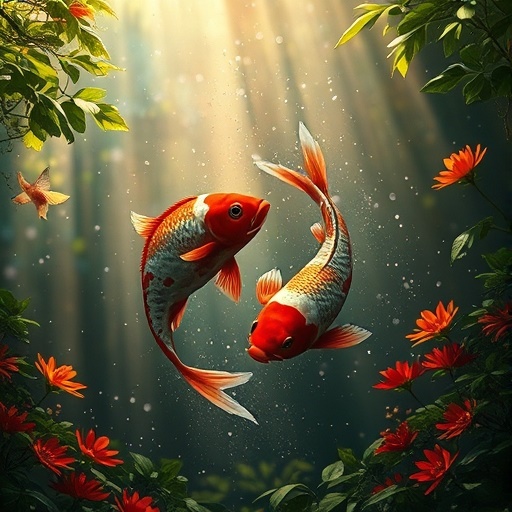Koi fish are not just a stunning sight in decorative ponds; they carry profound meaning, particularly in Japanese culture. Their striking appearance, with vivid colors such as red, white, yellow, and black, makes them a popular choice for ornamental ponds, but their symbolism goes much deeper. Koi have become symbols of strength, perseverance, and transformation, holding an important place in various cultural beliefs.
The popularity of koi fish in Japan can be traced to their symbolic ties to strength and resilience. According to Japanese legend, koi fish are believed to have the ability to swim upstream against strong currents, and in some versions of the story, a koi that swims all the way to the top of a waterfall transforms into a dragon. This tale represents the idea of overcoming obstacles through determination and hard work. As such, koi fish have become symbols of endurance, especially for those facing personal challenges or striving to achieve success.
In addition to their association with perseverance, koi are also symbols of good luck and prosperity. Many people in Japan and other parts of Asia believe that keeping koi can bring positive energy into their lives. During the Japanese festival known as “Tango no Sekku,” or Boys’ Day, families often hang koi-shaped flags, which symbolize the wish for children to grow strong and courageous, much like the koi in the legends.
The connection between koi and water further adds to their significance. Water, being an essential life source, symbolizes purity, clarity, and tranquility. Koi are often seen in water gardens or ponds, where their graceful movement and vibrant colors bring a sense of peace and harmony. For people seeking balance and a connection to nature, koi fish are the perfect addition to a garden, creating an atmosphere of serenity.
Caring for koi fish is also a practice that many find rewarding. Raising koi involves maintaining a healthy pond ecosystem, ensuring the fish have proper nutrition, and providing an environment where they can thrive. The art of koi breeding is particularly intricate, as breeders carefully select fish based on their patterns, colors, and overall health. Enthusiasts around the world take great pride in their koi collections, which are often passed down through generations.
In conclusion, koi fish have much more to offer than their physical beauty. Their deep symbolic meanings related to perseverance, prosperity, and harmony make them a unique and cherished part of various cultures, especially in Japan. Whether as a spiritual symbol or a cherished pet, koi fish continue to captivate and inspire people around the world.

